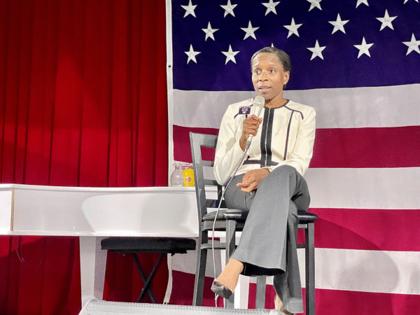Atlanta mayor's office wants oversight of city inspector general
Published in News & Features
ATLANTA — In 2020, former Atlanta Mayor Kiesha Lance Bottoms called the creation of the Office of Inspector General a step to ensure the city has “the strongest safeguards possible to prevent corruption in City Hall.”
Officials were reeling at the time from investigations into the city’s innerworkings by multiple federal agencies. And the former mayor stressed that the new office would serve as an “independent set of eyes, ears and teeth to root out misconduct … separate from any political influence.”
But almost exactly five years later, city leaders are poised to overhaul the watchdog office with so many changes that Atlanta’s Inspector General Shannon Manigault said she would considered resigning.
The bulk of the legislation backed by the mayor’s office and introduced at the City Council meeting on Monday bolsters the rights of employees interviewed in investigations, creates thresholds for how investigations are opened and outlines a subpoena process for acquiring records.
But it also gives the mayor the power to appoint all members of the inspector general’s governing board, essentially stripping the political independence of the body, according to critics.
Another small, but significant change made in the very first lines of the proposed legislation strikes an important mission of the inspector general: investigating corruption so extensive that it may lead to criminal charges.
All other uses of the word “corruption” in the original legislation are removed in the changes offered by the Dickens administration.
That raises questions about whether an inspector general, operating under the proposed legislation, could even investigate misconduct to the level of 2017′s major corruption case that spurred the creation of the office.
“Some (inspector generals) are focused on criminal investigations where others are focused on administrative improvements and discovery of problems,” City Attorney Patrise Perkins-Hooker told The Atlanta Journal-Constitution about the revision.
“We wanted to make certain that that language about the mission was clear — she’s not the FBI,” Perkins-Hooker said.
That specific change caught Manigault’s attention.
“You don’t want an Office of Inspector General to investigate corruption?” she said. “It’s kicking the city backwards.”
The inspector general said the change to who appoints her governing board in the legislation “eviscerates” the office’s independence.
Legislation passed in 2020 outlines that members of the governing board will be nominated by various legal and community organizations and confirmed by City Council.
If new legislation passes as is, those organizations may still recommend members but appointments are ultimately made by the mayor.
“Because the very body that’s responsible for appointing and removing the inspector general — the head of this office — is made up of these individuals who are hand picked by the mayor,” she said. “It’s one degree of separation from the mayor appointing the inspector general.”
“That is a very serious and very radical change,” Manigault said.
The effort to crackdown on how Manigault’s team uncovers misconduct complaints stems from an unprecedented speech during public comment at an Atlanta City Council meeting in May where she raised concerns that investigations were being blocked internally by top Dickens administration officials.
It led to the creation of a task force — spearheaded by the mayor’s office — that on a short time-crunch released recommended changes to the inspector general’s role at City Hall. A big part of the conversation centered on the rights of employees who are interviewed.
Dickens’ Chief of Staff Odie Donald called the legislation an attempt to “level the playing field” — especially for employees who find themselves involved in probes.
“Employees need to know what their rights are throughout this process and any pending investigations,” he said.
The recently introduced legislation allows employees to have union or legal representation during interviews, requires conversations take place on city property during regular business hours and codifies a subpoena process.
New provisions also require employees involved in investigations to be notified if they’re the subjects, and gives them the opportunity to refuse to hand over records or city devices requested by the watchdog office.
“Those things really do keep us from being able to keep our investigations confidential,” Manigault said.
©2025 The Atlanta Journal-Constitution. Visit at ajc.com. Distributed by Tribune Content Agency, LLC.







Comments